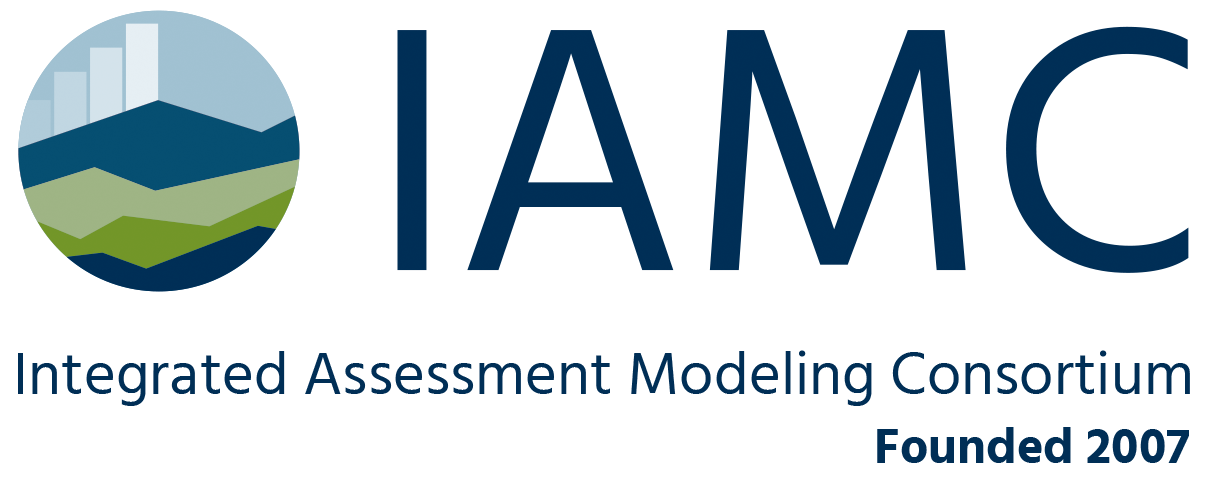
Scientific Working Group on National Scenarios
The Scientific Working Group on National Scenarios (National SWG) aims to facilitate the discussion of national scenarios, develop national models, and coordinate scenario comparisons across countries or regions. The ultimate goal of these activities is to provide the research community service to deliver appropriate information to national level climate change related decision-makers. The National SWG will serve the Integrated Assessment Modeling Consortium (IAMC) and the advancement of science for climate change mitigation modelling and its scenarios analyses by facilitating the exchange of ideas and coordination within the IAMC. It can also facilitate and coordinate interactions of the IAMC community with national scenario users, such as national governments, international organizations and private companies.
Open Call
The IAMC SWG on national scenarios is initiating an open call for country-level scenarios. This process will be utilized to generate an official database of country level (economy-wide, sectoral) scenarios that will be vetted and analyzed. The analyzed data will be submitted for peer review publication based on the study protocol.
Please find the scenario protocol of the first study (ver. 5) for your reference and feedback (view details).
We would very much appreciate it if you could take the time to provide us information about your model/scenario generation tool.

Frequently Asked Questions
- What is the motivation behind the SWG?
Model-based climate and emissions scenarios are pivotal instruments for determining whether proposed actions align with the long-term goals. Similar to the role of global emissions scenarios in international negotiations, national scenarios have widely contributed to national policy making. The national scenarios developed in several countries and regions inform governments through internal reports, widely via grey literature (for e.g.: government reports) and occasionally published in peer-reviewed journals. The main purpose of the SWG is to facilitate and coordinate interactions between the research community and relevant stakeholders (at local, national, regional and international) with the best available science by synthesizing information on national models and scenarios within and across countries.
Designing scenario protocols to collect scenario data will be an on-going exercise under this SWG. The SWG will coordinate with other SWGs based on the main objectives of the proposed study.
- What are the main objectives of the SWG?
- Promote standardization among national scenario development activities to increase comparability and use in assessment of international climate policy.
- Inter-linking national and global activities.
- Provide a platform for sharing best practices to build capacity through the exchange of information. This includes (but is not restricted to) national scenario development, model inter-comparison and assistance with common reporting databases.
- Facilitate and support dialogue between IAMC community (global, national) and national scenario uses through outreach and communication activities.
- Coordinate on archiving, documentation and communication of national scenario data
- What is the purpose of this study?
This study builds on the work compiled in IPCC WGIII AR6 Chapter 4 (mitigation and development pathways in the near and medium term). We plan to evaluate the gap between the current policies being implemented and the measures required to reach the Net Zero targets at national level. The main objectives of the first exercise are explained in the scenario protocol.
- What are the main scenarios required to participate in the study?
We request the interested teams to submit three scenarios namely reference/baseline/BAU scenario, current policy scenario (CPS) and Net Zero scenario (NZS).
- How flexible are the definitions of the scenarios?
The definitions of the scenarios for this study are not flexible; however, the interpretation of the scenarios will differ across countries based on their national circumstances and policy implementation. We will request country teams to contact us in case they require more clarity about the scenarios.
- What is the emissions coverage in the current study?
The study aims to cover carbon dioxide (CO2) from all sectors. This study also accepts scenarios covering only energy related CO2, and/or AFOLU related to CO2. We encourage teams to submit all GHGs if possible. This exercise will be used to document the emission coverage of all participating teams.
- Should it (scenarios) be work in progress or completed or published studies?
The SWG will accept work in progress scenarios for the first round. Completed (not published) and/or published scenarios will be accepted for the final round.
- Are you planning to build a national repository?
There is a possibility that country energy modelling forums may have built a national repository. One of the objectives is to build a global national scenario repository that could be eventually used:
- a) to advance science on national climate, energy and sectoral policy implementation,
- b) to contribute to IPCC Assessment reports and relevant international studies (UNEP GAP, GEO) and
- c) to inform UNFCCC policy processes.
- What is the minimum requirement to participate in this study?
The minimum requirement to participate in the study will be documentation or equivalent information on the scenario generation tool and/or model (grey literature, peer-reviewed literature) used to generate the requested scenarios. In case the country teams have questions on this, we encourage them to contact us.
- Countries have different NZ years. For inter-model comparison how do you plan to be consistent when considering the time frame?
For this study, we encourage the country teams to submit data with different NZ years [So for example: Country C may have NZ year 2060, will submit scenarios till 2060]. We will decide on inter-model comparison consistency after we receive the data. In case the country teams have questions on this, we encourage them to contact us.
- Can the national country specific scenarios derived from global models be acceptable (one which has country as a region)?
Yes. In the current study, we are open to global or regional teams planning to submit country specific and/or region-specific scenarios.
- While considering NZ pledges, will you be considering carbon sinks as most models are oriented towards energy systems?
Yes. We will be considering the carbon sinks as well if you consider within scenarios. For example, if the NZ pledges explicitly include AFOLU emissions, the energy related emissions at the year of NZ target do not need to be zero emissions.
- Will the study consider only carbon pricing policy for the climate change mitigation scenarios or broader policy options?
Scenario submitted to this study can include non-carbon-pricing policies but there should be explicit explanation what kind of policies are assumed in them.
- How do you plan to compile the scenario data?
The compilation of national models and scenarios data will be hosted by the International Institute for Applied Systems Analysis (IIASA) on a Scenario Explorer as a part of cooperation agreement with IAMC SWG on national scenarios. We will share the scenario database template for data submission along with final scenario protocol.
- Will there be assistance provided to transfer model output to IAMC scenario template?
We will encourage the teams to transfer the data to IAMC scenario template by themselves. For those who cannot transform the currently available scenario data into so-called IAMC template, please contact us. We will assist you with the data processing.
- How do you plan to vet the submitted data?
The vetting of scenario data constitutes verification and validation of scenario results in this study. This will include (not limited to) historical data validation (hindcasting), unit checks, consistency amongst the submitted variables and clarification on issues in scenario results.
- What is the timeline of the study?
The time frame for the current study is approximately one year.
Timeline
2022: Introduction of SWG [Watch the introductory video by Shinichiro Fujimori ]
2023: SWG update and planned activities
2024: Progress and Open call for first study (ver. 5)
January 30, 2024 : IAMC SWG National Webinar
June 3, 2024: IAMC SWG National Webinar – Registration and Scenario Upload
First deadline: June 30, 2024 [Completed]
November 6, 2024: Progress Status of SWG study as on 31st October 2024
Modelling Teams interest: 90 [National, Global, Regional, Subnational]
Modelling Teams registered: 77
Modelling Teams that submitted scenarios: 36
Modelling Teams Data Validation completed: 36
Second deadline [December 31, 2024]: Scenario submission [Scenario variable list (ver. 7)]
Co-chairs
Members
Shinichiro Fujomori (U Kyoto), Mohamad Hejazi (KAPSARC), Haewon McJeon (PNNL), Roberto Schaeffer (UFRJ/PPE/COPPE), Diego Silva Herran (NIES), Saritha Sudharmma Vishwanathan (NIES).
IAMC members that are interested in participating in the work of the SWG should contact the IAMC Secretariat.



